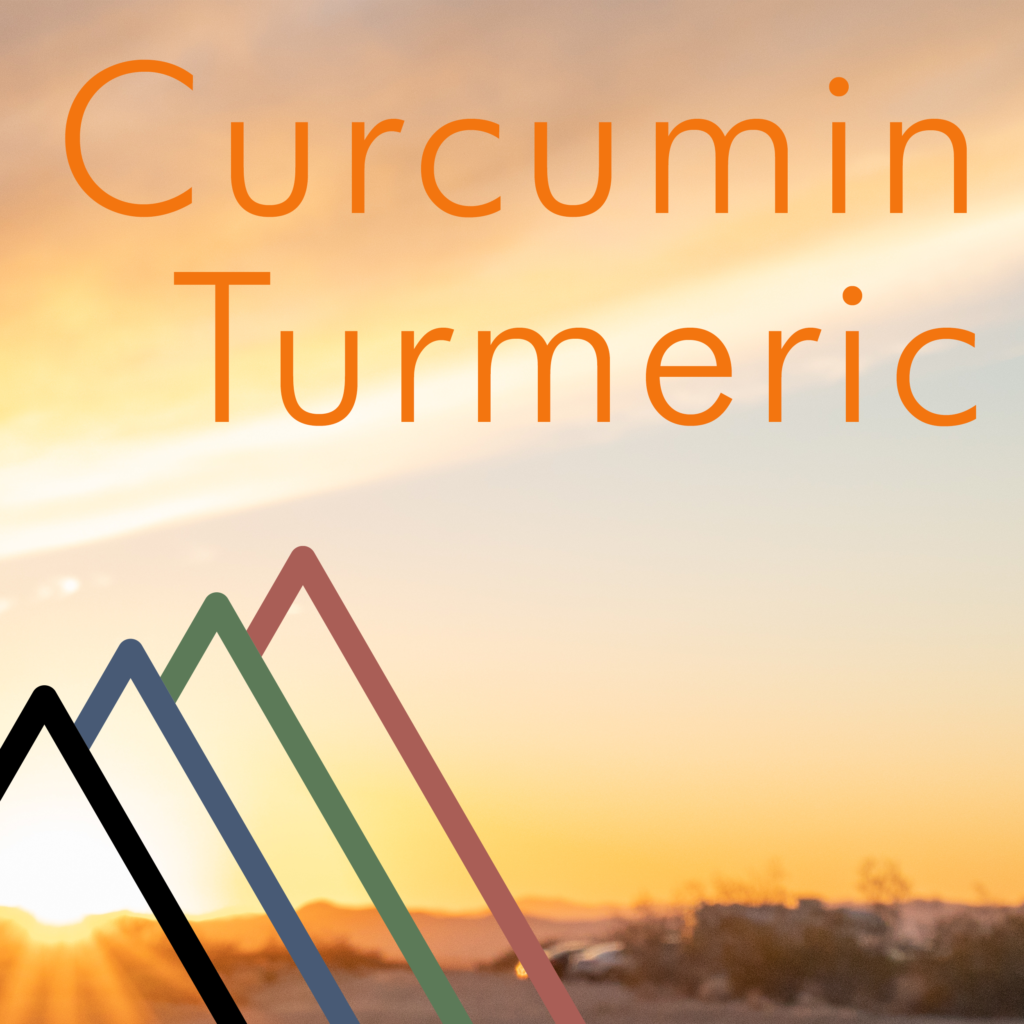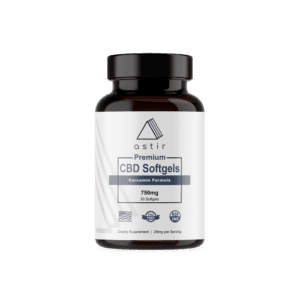What Is the Difference Between Curcumin and Turmeric?
To differentiate between curcumin and turmeric, let’s start with the source. The scientific name for turmeric is Curcuma longa. Turmeric is a rhizome, a stem that grows out of a root. As it moves through its life cycle, the plant will continue to grow and develop additional stems. These are cultivated and picked to be sold fresh or dried. Ginger grows in much the same way.
Curcuma longa is native to India. Traditionally, turmeric is ground into a powder and used to spice up traditional southeast Asian cuisine. These bright yellow granules can also be used as a natural dye for fabric and food.
Turmeric has a peppery bite and somewhat fruity presence, and it leaves a smoky aftertaste. It’s rich in several vital nutrients, including manganese, potassium and iron. In addition, turmeric contains unique compounds known as curcuminoids.
Curcuminoids in Turmeric
Curcuminoids are antioxidants that give turmeric its distinguishable hue.
The percentage of various curcuminoids present in turmeric are:
- Bisdemethoxycurcumin: 3%
- Demethoxycurcumin: 17%
- Curcumin: 77%
Similar to how CBD is one of the most abundant cannabinoids in broad spectrum hemp extract, curcumin is the most abundant curcuminoid found in turmeric. While consuming fresh or powdered turmeric is one way to get a hefty serving of curcumin, you may need to use additional methods to notice the benefits of this compound in your everyday life.
Can You Eat Turmeric for Curcumin Benefits?
The odds of getting enough curcumin in your regular diet to notice its potential benefits are pretty slim. Ground turmeric powder has only small amounts of this potent antioxidant. When you grind a plant into a powder, it releases chemical compounds from within. As a result, these molecules start to oxidize.
There’s no way of knowing how long the turmeric on store shelves has been oxidizing. Not to mention, a majority of commercial spices aren’t cultivated using organic practices. Simply consuming higher amounts of this store-bought spice might not increase your chances of reaping the benefits of curcumin.
What Are the Benefits of Curcumin versus Turmeric?
Think of turmeric and curcumin as similar to whole plants versus essential oils. When you bite into a mint leaf, it’s a different experience than diffusing mint essential oil. As your body digests plant matter, there are many nutrients competing to be absorbed by your system. The beneficial terpenes within the whole plants’ oils aren’t absorbed in large quantities.
The health benefits of turmeric are its nutritional value. This rhizome offers a variety of vitamins and minerals we need for our bodies to function at optimal levels. It can be added to everyday staples in our diets for its wellness-promoting properties.
When you extract curcumin from turmeric, it becomes highly concentrated. You’re getting much more than the 2-5% concentration of curcuminoids found in turmeric root. This compound exhibits robust antioxidant behavior. Curcumin assists your body in producing extra antioxidant enzymes.
These beneficial properties make the extract an excellent support system for heart health and recovery from strenuous activity. Many have turned to turmeric-derived curcumin as part of their daily routines.
Where to Get Curcumin
If you are purchasing Ayurvedic plants to add to your wellness routine, make sure you read the fine print. When shopping at health stores or online, you want to use curcumin extract for the best results, not powdered turmeric, which is simply the same turmeric you would find in the spice or produce aisle.
That doesn’t mean food-grade turmeric isn’t an excellent addition to your diet. Much like ginger, people find this peppery spice helpful for an upset stomach. Instead of turning to the dry powder, pick up a fresh turmeric root. Cut it open and steep a turmeric knob in hot water. This process will break open some of the rhizome’s fibers. As a result, your tea will provide a nice burst of curcuminoids.
You can grate turmeric root to easily incorporate it into any of your dishes. Not only will you add fresh curcumin in your diet, you’ll also add a new and exciting flavor.
Due to the low concentration of curcumin in turmeric root, you may want to supplement your curcumin intake for better results. We’ll go through a few tips on how to get the most out of this powerful antioxidant.
How to Improve Your Wellness Regimen with Curcumin
Unfortunately, curcumin is difficult for our bodies to absorb efficiently. This molecule dissolves in fat, so simply taking an extract or eating fresh rhizome powder may not do the trick.
Approximately 60% of the human body is comprised of water. As a result, much of the curcumin we ingest doesn’t survive. The bloodstream simply does not have enough opportunity to absorb this antioxidant. Luckily, there are a couple of tricks you can use to improve the bioavailability of curcumin.
Black Pepper
Black pepper is the ultimate tool for increasing your curcumin absorption rate. This popular spice has an abundance of piperine. Piperine is an alkaloid responsible for the pungent scent we associate with freshly cracked pepper. It can also increase your curcumin absorption by up to 2,000%.
Many companies sell curcumin extracts and turmeric capsules, and most of them will infuse piperine into the formula. If you decide to go with extracts or capsules, look for the words “piperine” or “Bioperine.” Otherwise, you are less likely to absorb the curcuminoids in the mixture.
If you bought a curcumin or turmeric product that doesn’t contain black pepper, don’t throw it out. Just make sure to eat a meal that has a hefty serving of black pepper in it when you use your product.
For those who are trying to add more turmeric into their diets, try making a soup stock or tonic with the turmeric. Add some freshly cracked pepper into the recipe for improved absorption. Not only will the flavors in your entree transform, but so will the bioavailability of the rhizome’s curcuminoids.
Healthy Fats
We mentioned earlier that curcumin is a fat-soluble compound. Adding healthy fats to your curcumin regimen can be beneficial for optimal absorption. The fats act as a shield around the curcumin as it enters your system.
Not only do fats protect curcumin from being destroyed, but they also maintain the integrity of turmeric compounds. Healthy fats such as those found in avocados and almonds will take the brunt of the damage. In turn, the curcuminoids are more easily absorbed into the system.
When curcumin and healthy fats are absorbed together, the fat that survives the process will latch onto adipose tissue. Some of the curcumin ends up there as well. As you burn calories throughout the day, your body may therefore experience prolonged benefits from curcumin.
What Is the Best Curcumin Product?
Turmeric is growing in popularity and has skyrocketed as one of the top additions to many daily wellness routines. Always look for a curcumin extract with piperine for the best results, and consume it with healthy fats to improve absorption. Before choosing any turmeric or curcumin product, do your usual due diligence. Vet the company and scope out their practices. If they use natural farming methods and lab-test all of their ingredients, give them a try to see if curcumin can benefit you.
CBD and Curcumin
One of the best ways to implement curcumin in your daily regimen is to merge it with your CBD care. As we’ve mentioned, these two beneficial compounds have a number of parallels. When used together, they offer the ultimate accompaniment to one another.
The main benefit of CBD oil is that it promotes homeostasis in the system. Our bodies spin a lot of plates at once, so these cannabinoids have a lot of ground to cover.
By adding curcumin to the mix, you’re enhancing the benefits of CBD products. Curcumin may provide beneficial effects on major systems, including potentially supporting heart and digestive health. CBD offers many additional benefits to the body, and using both compounds in tandem has left many satisfied users enjoying optimal wellness.
Astir CBD Softgels with Curcumin are formulated with wellness and absorption in mind. These capsules contain medium-chain triglycerides (MCT), a form of healthy fats our bodies burn through efficiently.
For many of us who live a predominantly sedentary life, long-chain fatty acids do not dissipate adequately. Instead, they stay locked in our adipose tissue, waiting to greet the fats from our next meal. Short-chain fatty acids burn too quickly for ideal absorption. MCT is just right.
The Astir CBD Softgels with Curcumin use MCT to provide you with the most powerful benefits and enrich your day-to-day.




